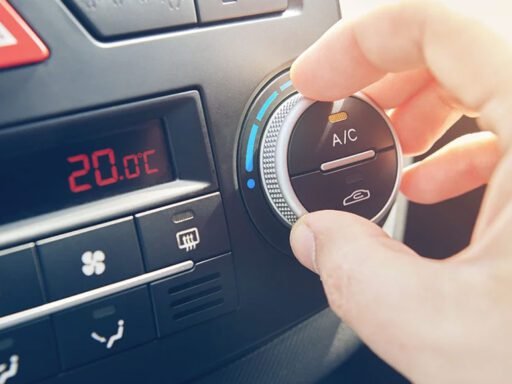Owning a diesel truck comes with plenty of benefits, power, reliability, and the ability to handle heavy loads with ease. Whether you rely on your truck for work, towing, or personal use, it’s a big investment that you expect to last for years. But like any hardworking machine, a diesel truck needs regular attention to keep running smoothly.
Neglecting maintenance can lead to poor fuel economy, reduced engine performance, and costly repairs that take you off the road when you need your truck most. The good news is that staying ahead of potential issues isn’t complicated. By following a consistent maintenance schedule and paying attention to early warning signs, you can extend the life of your truck and avoid expensive downtime.
The first step is making sure you have access to reliable help when you need it. Even if you prefer to handle simple maintenance yourself, having a professional you trust makes a big difference when serious problems arise.
Build a Relationship with a Trusted Mechanic
Your truck is a major investment, and having the right professional support can make all the difference in how long it lasts. Every diesel truck owner should have a go-to professional for inspections, repairs, and emergencies. When you can’t make it to a shop, working with a skilled mobile diesel mechanic can be a game-changer. Mobile services come to you, whether you’re stuck on a job site, at home, or even on the side of the road, saving you time and hassle. They can handle a wide range of issues, from diagnostics and routine maintenance to urgent repairs, helping you get back on the road quickly.
Having a trusted mechanic or mobile service on call also means you can schedule regular inspections without interrupting your work schedule. This proactive approach helps catch small problems before they turn into major ones, preventing costly breakdowns that could have been avoided with early intervention.
Stay on Top of Oil and Filter Changes
Diesel engines work harder and run at higher compression than gasoline engines, which means clean oil is essential. Fresh oil keeps engine components lubricated, reduces friction, and prevents premature wear. Skipping oil changes can lead to sludge buildup, overheating, and serious engine damage.
Follow the intervals recommended in your owner’s manual, but keep in mind that trucks used for heavy hauling or frequent short trips may need oil changes more often. Don’t forget the oil filter — it traps contaminants and should be replaced at the same time as the oil to keep everything running smoothly.
Monitor Fuel and Air Filters
Your diesel engine’s fuel system is sensitive to dirt, debris, and water contamination. Replacing fuel filters regularly helps keep the fuel clean and ensures smooth combustion. A clogged filter can starve the engine of fuel, causing rough idling, poor acceleration, and even stalling.
Air filters are just as important. A dirty air filter restricts airflow, reducing engine efficiency and fuel economy. Inspect the air filter frequently, especially if you drive in dusty conditions, and replace it when it looks dirty. Clean air means better performance and less strain on your engine.
Keep an Eye on Coolant and Cooling Systems
Overheating is one of the most damaging problems a diesel engine can face. Make it a habit to check coolant levels and inspect hoses and clamps for leaks or cracks. Low coolant or a failing water pump can quickly lead to overheating and expensive engine repairs.
Flushing the cooling system at recommended intervals removes rust and sediment that build up over time. A clean, well-maintained cooling system helps your engine maintain the proper temperature and run efficiently under heavy loads.
Inspect Belts, Hoses, and Gaskets
Belts and hoses may seem minor, but when one fails, it can leave you stranded. Look for cracks, fraying, or loose connections and replace worn parts promptly. Gaskets should also be checked for leaks, as they play a critical role in sealing fluids and preventing contamination.
Regular inspections of these components can prevent breakdowns at inconvenient times. Replacing a worn belt or hose is far cheaper and easier than dealing with the damage that can occur if one fails while you’re on the road.
Pay Attention to Warning Signs
Your truck will often tell you when something’s wrong. Pay attention to unusual smoke from the exhaust, loss of power, strange noises, or dashboard warning lights. Ignoring these early indicators can turn small problems into big ones.
If you notice something off, don’t wait; get it checked right away. Quick action can mean the difference between a simple repair and a costly overhaul. Having a mechanic you trust or a mobile service you can call makes addressing these issues much easier and less stressful.
Maintain Tires and Brakes for Safety
Tires and brakes are critical for safety, especially if you haul heavy loads. Check tire pressure regularly to avoid blowouts and uneven wear. Proper inflation improves fuel efficiency and extends tire life. Inspect tread depth to make sure you have enough grip, especially in wet conditions.
Your braking system needs just as much attention. Worn brake pads or low brake fluid can compromise stopping power, putting you and others at risk. Have your brakes inspected regularly and replace pads, rotors, or fluid as needed to keep your truck safe.
Keep Records of All Maintenance
Tracking your maintenance history is a smart habit. Keep a log of oil changes, filter replacements, inspections, and repairs. This record helps you spot patterns, stay on top of upcoming services, and plan for future costs.
If you ever decide to sell your truck, detailed maintenance records can also increase its value and make it more attractive to buyers. It shows that you’ve taken good care of the vehicle, giving potential buyers confidence in its condition.
A well-maintained diesel truck is more reliable, efficient, and safer to drive. By staying on top of routine maintenance, paying attention to early warning signs, and partnering with a mechanic you trust, you can keep your truck running at its best for years to come.
Think of maintenance as an investment. The time and money you put into caring for your truck now will save you far more in repairs and lost time down the road. With a little consistency and the right support, your diesel truck will be ready to work as hard as you do whenever you need it.






